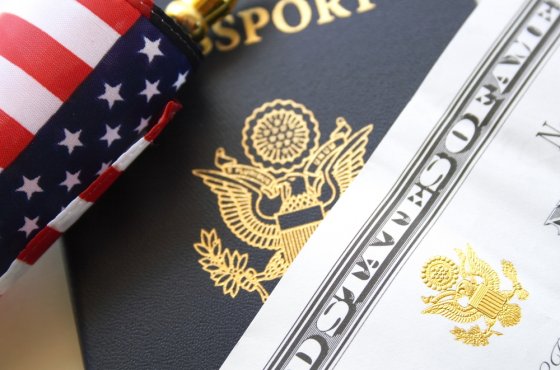Natan Sharansky: “It was easier in a Soviet prison than in the Knesset...”

Nathan Sharansky. Photo courtesy of Natan Sharansky
He was threatened with a sentence of execution, then the sentence was “mercifully” replaced by 13 years in the camps. He served 9. Of these, 405 days in a punishment cell and many years in solitary confinement. Three pieces of bread a day, cold and loneliness - that’s what a punishment cell is. Hunger strikes, once for as long as 110 days, forced feeding and finally deportation from the USSR. Natan Sharansky is a prisoner in the USSR who became a minister in Israel. On January 20 he turned 70 years old.
“Unlike fighting the KGB or a Soviet prison, life in the Knesset consists of compromises - in order to do something you believe in, you are forced to do something you don’t believe in,” Natan Sharansky once said.
In general, he has a lot of very accurate observations that are transcribed into quotes. Here’s another: “The strongest connection with Jewry in our Soviet childhood was anti-Semitism.”
Natan Sharansky was arrested on charges of treason and anti-Soviet agitation in March 1977. The sentence is execution. Under pressure from the West, the “tower” was replaced by 13 years of camps. In February 1986, he was released and expelled from the USSR. The exchange took place on the famous “spy” Glienicke Bridge between West Berlin and the GDR. All these years, Sharansky’s wife Avital fought for his release.
Natan Sharansky was awarded the Congressional Gold Medal (the first recipient was George Washington, and in the 250 years since the establishment of this award, only about 150 people have received it). In 2006, he was awarded the Presidential Medal of Freedom, the United States' highest honor. Throughout history, only five non-US citizens have received both awards together. Today Sharansky is the only non-American in the world to hold these awards.
In Israel, Sharansky founded the party Israel Ba-Aliya, the head of which became, 4 was elected to the Knesset, he was several times a government minister. He is now the head of the Jewish Agency.
- So, happy anniversary...
- Thank you. To be honest, I have no intention of celebrating it.
- Let's start with the unpleasant. You spent a total of 405 days in the punishment cell. This is difficult even for a physically strong person. You are not an athlete, and you are not tall. How did you manage to survive?
- You know, in fact, short stature has a huge advantage for a prisoner. For example, three pieces of bread is the daily norm in a punishment cell. For a two-meter giant, this is devastatingly small. And with my height of 159 centimeters it was possible to live. But soldering is not given based on size; the standard is the same for everyone. And clothes. The tall man is given a jacket and pants, and his bare arms and legs stick out. And I could additionally wrap myself in long sleeves, like in a cocoon, and breathe in there to warm up. So being a short person has its advantages in prison. (Is laughing.)

Nathan Sharansky with Shimon Peres. Photo courtesy of Natan Sharansky
— You have five grandchildren. Are they old enough to be consciously proud of their grandfather?
- Six! I already have six grandchildren. I love them very much. I don’t know what about being proud of me, but they are brought up so that they know the history of their people. And every year on the date of my release from prison, we hold a second Passover Seder. While they were very little, they were interested in whether there were spiders or rats in the punishment cell... And now they ask precisely ideological questions, because they grew up inside this story. I am very sad to see that in some other families the children know nothing about the life their parents lived in the USSR.
—Have you ever walked with them along the New York street that bears your name?
“Once my wife and I were with our little daughters in New York. We came there, it is located near the UN building and the Israeli consulate. I started talking about how their mother (Avital) had performed not far from this place more than once. Then a cat ran past, one daughter shouted to the other: look, look - a cat... And I realized that the “educational moment” was lost. (Is laughing.) But seriously, I can say that they, and now their grandchildren, are just interested in the very history of dissidence in the USSR, and not all the streets named after ...
— As a child, you dreamed of being a world chess champion. But despite the fact that the dream did not come true, you still beat world champion Garry Kasparov. How did you manage to do this, he didn’t give in?
— Garik has always been very proud in a professional sense. He never gave in on purpose and was very upset that he lost. But I consoled him with the fact that for 9 years in prison I had to play chess “blindly” - there was neither a board nor pieces. I also told him that when the World Championships were taking place, all the prisoners in the camp were rooting for him, and all the guards were rooting for Karpov. I inscribed my book “In Defense of Democracy,” which I gave him: “To the dissident Kasparov from the chess player Sharansky.” (Is laughing.)
— Do you remember the day of Stalin’s death?
— Yes, I was 5 years old then. Dad took me aside, made sure that there was no one nearby (we then lived in a communal apartment), and said that a miracle had happened. A miracle that saved the Jews from impending destruction. He was a journalist and knew a lot that others did not know. But he asked us, me and my older brother, who was 7 years old at the time, to behave like everyone else. And I remember that then in kindergarten I cried along with everyone and sang songs about my beloved Stalin with everyone. And I didn’t know who was crying sincerely and who was crying like me. This was the beginning of my double life as a Soviet man. And only when I became an adult did I understand what dad meant: after all, Stalin died on Purim. And as we know from our history, miracles of salvation of the Jewish people occurred more than once on Purim.

Natan Sharansky with Yitzhak Shamir. Photo courtesy of Natan Sharansky
— Did this lesson begin what you later called doublethink?
— Yes, growing up, I realized more and more that the whole country was living a double life. And that at the heart of this double life is fear.
— During the Six-Day War you were almost 20 years old. Young men your age fought in that war. How did this affect you and how did they react on the streets to the unexpected victory of the Jews?
— Anti-Semitic jokes, of course, continued. But what’s interesting is that if earlier the topic was money and that Jews are cowards, then after the victory of the Jews in the Six-Day War, the topic of jokes became Jewish arrogance and Jewish hooligans.
How to become dissidents
— And this was precisely what prompted a completely prosperous young man to start fighting the system?
- Not certainly in that way. At first I tried to become a successful person in a professional sense, I entered a very prestigious Moscow institute, our teachers were scientists such as Landau, Kapitsa... I wanted to study only physics. The victory of the Jews in the Six-Day War caused shock in the country, because it was perceived as a slap in the face, including the Soviet Union. The Arabs were armed with Soviet weapons, and Soviet officers trained the Arab military. Then a simply monstrous campaign began to condemn the “Israeli military.” The entire government leadership of the USSR was furious.
- When did the epiphany occur?
“I suddenly realized that everyone around me—both friends and enemies—connected me with Israel and even with the Israeli army. I wanted to understand this connection and began reading samizdat books about our history and our people. An equally important factor was Andrei Sakharov's open letter to the Soviet government in early 1968. This letter greatly influenced me. I saw that even the top in a professional sense is not at all a guarantee of freedom. Then I was still afraid to openly become a dissident, but I realized that no science could become a niche where you can hide so as not to see the truth. Then events happened in Czechoslovakia, after which it became generally ashamed to be a Soviet citizen... So I gradually matured to become a Zionist activist, and then an unofficial press secretary of two movements - the Zionist and for human rights.
— You didn’t become a great chess player, as you dreamed of as a child, and you didn’t receive the Nobel Prize in Physics... What did you do best?
— Yes, I dreamed of becoming a world chess champion, then I was a good physicist. But most of all I succeeded in prison. (Is laughing.)
— You became a kind of liaison between the dissident movement in the Soviet Union and the West. How did you manage to meet foreigners?
— In conditions of total surveillance of any dissident, this was indeed very difficult.
— And that’s when you founded the Helsinki Group?
— Yes, in 1976 the Helsinki Group was created, and I became one of the initiators of its creation.
How to ride a taxi at the expense of the KGB
— The KGB has been watching you for more than three years. During such a time there must have been a lot of funny things?
“The fact that your every move was being watched was very depressing at first. And then I began to find funny sides to it. For example, when I unexpectedly got into a taxi to break away from surveillance, they had no choice but to jump into the same car. The taxi driver looks at them questioningly, they take out their IDs. Then I tell them: we pay in half! They have nothing to do - they agree. Since then, I began to use it often and rode in a taxi at the expense of the KGB. In addition, I knew that if hooligans attacked me, they would protect me to prevent “property damage.” (Laughs.)
— You were arrested, and the word “execution” was heard. Don’t you regret getting involved in all this dissidence, in the fight against the KGB? It's scary...
- No, I didn’t regret it, because I knew what I was getting into. But, of course, it was scary to realize that they could shoot. I even tried to accustom myself to this word, repeating it out loud many times, walking back and forth in the cell...
— In prison, reading the newspaper Pravda, which was allowed there, you learned that Reagan called the USSR an “evil empire.” Everyone else before him tried to appease the Soviet regime. Is there hope?
— Yes, I really respect Reagan, who was the first to understand that one should not flirt with the Soviet Union.

Nathan Sharansky with Ronald Reagan. Photo courtesy of Natan Sharansky
— When did you find out about your possible release?
“Almost two months before, I was transferred to enhanced hospital nutrition. (Laughs.) In prison, there were several gradations of rations issued. I realized that something unusual was being prepared.
— You were brought to the Glienicke Bridge on the border of West Berlin and the GDR. Is the story of liberation like a detective story?
“The US Ambassador to Germany, Richard Burt, took my arm, and we crossed the bridge. I didn’t see who else was exchanged there.
— A human rights activist there, in the former Soviet Union, and a human rights activist here, in Israel, are these different concepts, in your opinion?
- Totally different! There has been a change in concepts. Moreover, here it is completely safe and even profitable. There people were shot for it, but here it’s business...
Who can to be considered a Jew?
—What is the concept of “Jew” for you? Let me explain - is this only a halakhic Jew, that is, born of a Jewish woman, or is this also the grandson or great-grandson of a Jew who served in the army, defended Israel and, most importantly, considers himself a Jew?
- This is a difficult question. But, in general, I can say that someone who sincerely considers himself a member of the Jewish people, honors Jewish history and raises his children in Jewish traditions can be considered a Jew.
- There is an old joke. At a sermon in church, someone shouted: “And the priest’s daughter is a prostitute!” Father blinked his eyes helplessly and said in confusion: “Yes, I don’t even have a daughter.” But the rumor has already spread... Have you ever had a situation in your life when you were faced with obvious slander or an unfair accusation? Except, of course, for being accused of treason, for which you were almost shot.
- Yes, sure. This is a well-known trial where Yuli Nudelman was the defendant. He accused me of being an intelligence agent. True, he could not choose which one: either the KGB, or the CIA, or the Mossad. The court ordered him to pay one million shekels in compensation for libel. Of course, he didn’t pay any million. But this was the only case in Israeli jurisprudence in which such damages for libel were awarded.
— There are almost as many Jews living in America as in Israel. How many of the American Jews do you think are friends of Israel, and how many are enemies?
“The majority, the overwhelming majority, treat Israel with love, and experience the death of every Israeli soldier!” Another thing is in the political sense. This is a difficult question, there are problems... But you need to understand that these are problems of survival of Jews in conditions of assimilation.
— You created the Israel Ba-Aliya party. Do you regret it?
- No! It was a very interesting and very successful social experiment.
Why Putin does not circumcise
— You met with Putin several times. Can you tell me something interesting about him?
“He said that he encourages Jewish life in Russia in every possible way, participates in cultural and religious events, and supports public organizations. And he added that he doesn’t do circumcision. And even then only because he is afraid to miss. (Is laughing.)
— What was the most difficult thing during your stay in the Knesset?
— It is generally very difficult for a former dissident in politics. The hardest thing in politics is the need for compromise. Twice I had to leave the Knesset due to disagreement with the policies being pursued. Including in 2005, when Sharon decided to withdraw from Gaza. These are the very “red lines” that cannot be crossed in order to maintain self-respect. I have been in four governments and resigned twice. For comparison: I was in four prisons, but I never resigned. (Is laughing.)

Nathan Sharansky with Ariel Sharon. Photo courtesy of Natan Sharansky
— So it was easier in prison than in the Knesset?
— In prison you can say “no” to the KGB, and you feel free. But being in a coalition, it is necessary to adhere to coalition discipline. That’s why in Sokhnut I can do much more of what I really consider important. First of all, it is maintaining a close connection between Israel and Diaspora Jewry.
— Donald Trump announced that he recognizes Jerusalem as the capital of Israel. Are you happy with his statement?
- Amazing! This is a historic statement! No, of course, we already know that Jerusalem is our capital. But his statement set an example and paved the way for the whole world to recognize Jerusalem as the capital of Israel.
- Thank you very much for the conversation. And up to one hundred and twenty!
Read also on ForumDaily:
Lieberman announces strategic doctrine for the Gaza Strip
US Vice President Visits Israel: Top Statements
In Jerusalem, the name Trump will call the railway station near the Western Wall
Subscribe to ForumDaily on Google NewsDo you want more important and interesting news about life in the USA and immigration to America? — support us donate! Also subscribe to our page Facebook. Select the “Priority in display” option and read us first. Also, don't forget to subscribe to our РєР ° РЅР ° Р »РІ Telegram and Instagram- there is a lot of interesting things there. And join thousands of readers ForumDaily New York — there you will find a lot of interesting and positive information about life in the metropolis.











